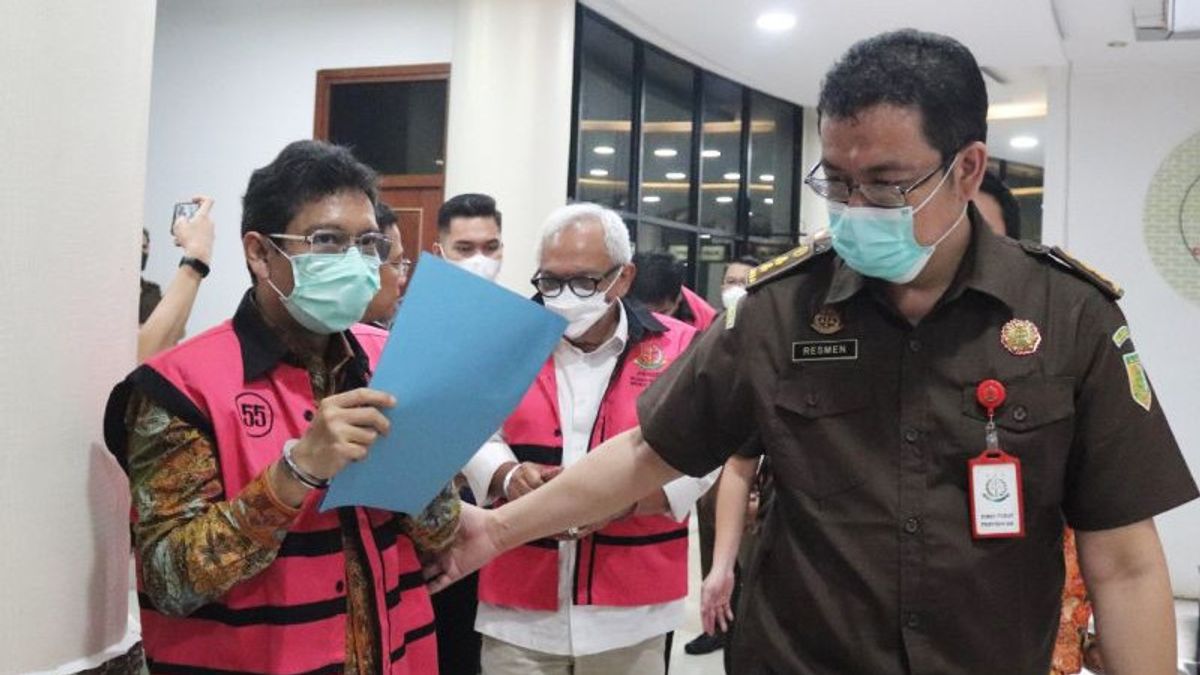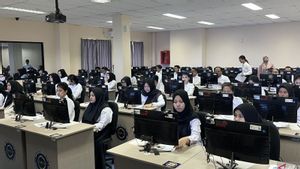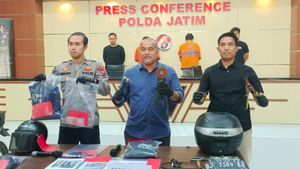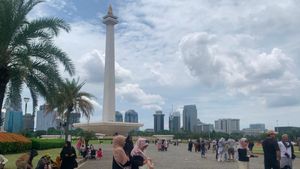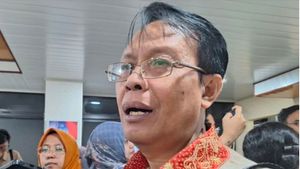JAKARTA - The Anti-Corruption Society (MAKI) stated that the Attorney General's Office can apply Article 2 paragraph (2) of the Corruption Crime Act (Tipikor) with the death penalty for suspects in cases of alleged corruption in the provision of export facilities for Crude Palm Oil (CPO) and its derivatives.
"All options for Article 2 paragraph (2) can be applied, including the death threat," said MAKI Coordinator Boyamin Saiman as quoted by Antara, Wednesday, April 20.
According to him, the Attorney General's Office can apply this article because the actions of the suspects have caused economic chaos because people have difficulty getting cooking oil, so the government issued a cooking oil BLT policy.
"It is perfectly permissible (the article on the threat of the death penalty) because this case will disrupt the economy, so that it can bring down the country," said Boyamin.
In addition, MAKI appreciates the Attorney General's Office for revealing cases of alleged corruption in the provision of export facilities for CPO and its derivatives involving a Director General at the Ministry of Trade (Kemendag) and three private parties who are classy CPO companies in the country.
Boyamin encouraged the prosecutor investigating the Attorney General's Office to develop the case by targeting big league companies suspected of being involved. Because based on MAKI data, there are around 9 CPO companies suspected of violating the CPO DMO provisions.
"I hope this can be extended to others who are suspected to be related to CPO and cooking oil and other big leagues, because these are only 3 companies, even though my record is around 9. So MAKI encourages the AGO to cooperate with the parties involved, "said Boyamin.
As previously reported, Attorney General Sanitiar Burhanuddin at a press conference yesterday announced four suspects in the case of alleged corruption in the provision of export facilities for Crude Palm Oil (CPO) and its derivatives which occurred between January 2021 and March 2022.
The four suspects, namely the Director General of Foreign Trade of the Ministry of Trade, Indrasari Wisnu Wardhana. Then, Master Parulian Tumanggor as Commissioner of PT Wilmar Nabati Indonesia, Stanley MA as Senior Manager of Corporate Affairs of PT Pelita Agung Agrindustri/Permata Hijau Group, and Picare Tagore Sitanggang as General Manager of the General Affairs Section of PT Musim Mas.
The Director of Jampidsus Investigations at the Attorney General's Office, Supardi, said that the four suspects were subject to Article 2 or Article 3 of the Corruption Crime Act (Tipikor), then Article 54 paragraph (1) letter a and paragraph (2) letter abe and f of Law number 7 of 2014 concerning Trade and/or Decree of the Minister of Trade number 129 juchto number 170 of 2022 concerning Determination of Amounts for Distribution of Domestic Needs and Domestic Sales Prices.
Then, the provisions of Chapter 2 letter a number 1 letter b in conjunction with chapter 2 letter c number 4 letter c Regulation of the Directorate General of foreign trade number 02 DAGLU per 1 2022 concerning Technical Instructions for Implementing Policies and Regulations on CPO Exports.
"Especially Article 3 or Article 3 of the Corruption Act," said Supardi.
Article 2 paragraph (1) states that any person who unlawfully commits an act of enriching himself or another person or a corporation that can harm state finances or the state economy, shall be sentenced to life imprisonment or a minimum imprisonment of 4 (four) years. four) years and a maximum of 20 (twenty) years and a fine of at least Rp. 200,000. 000.00 (two hundred million rupiah) and a maximum of Rp.1,000,000,000.00 (one billion rupiah).
Then Article 2 paragraph (2) reads, in the event that the criminal act of corruption as referred to in paragraph (1) is committed under certain circumstances, the death penalty may be imposed.
Whereas Article 3 reads, every person who with the aim of benefiting himself or another person or a corporation, abuses the authority, opportunity or facilities available to him because of a position or position that can harm the state finances or the state economy, shall be punished with life imprisonment or a criminal fine. imprisonment for a minimum of 1 (one) year and a maximum of 20 (twenty) years and or a fine of at least Rp. 50,000,000.00 (fifty million rupiah) and a maximum of Rp. 1,000,000,000.00 (one billion rupiah).
The English, Chinese, Japanese, Arabic, and French versions are automatically generated by the AI. So there may still be inaccuracies in translating, please always see Indonesian as our main language. (system supported by DigitalSiber.id)
